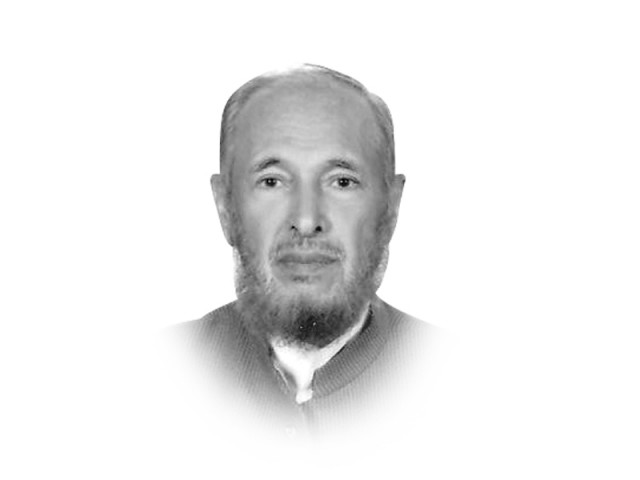The seeds of insurgency
Minus the military’s induction, there would have been no reaction to the events across the border.

The writer has served as ambassador to Afghanistan and chief secretary of Khyber-Pakhtunkhwa. He is a nominee of the Government of Pakistan in talks with the TTP
Was there a history of uprising in the tribal areas after Partition? Were the people of the tribal areas ever found wanting in their patriotism for the country? Were it not the tribesmen who took over parts of Kashmir in 1948 as volunteers and enabled the new state to hoist its flag on Muzaffarabad and lay claim to the valley of Kashmir? Were there even ripples of discontent in the tribal areas when an epic struggle was underway in Afghanistan in the 1980s and did that war, in any way, impact the tribal areas or its systems or the way of life of its people? Was there any evidence of any movement towards Talibanisation of the tribal areas when the Taliban movement took control of Afghanistan in 1996?
The answer to all these questions is an emphatic ‘No’. What, then, caused the otherwise peaceful tribesmen to suddenly take up arms and cause devastation in their own country? Tolerance was a virtue embedded in the tribesmen’s psyche. For thousands of years, Hindus and Sikhs have been living side by side with the tribes in Buner, Khyber, Orakzai, Kurram and Waziristan. Never ever have the majority tribesmen insulted or caused any pain or anguish to the Hindus and Sikhs living in the same villages and abiding by the same traditions, norms and codes as the majority Pashtun tribes.
Musharraf committed a historic blunder by inducting the army into the tribal areas as a means of placating the Americans, but in his ignorance, forgot that the move, as unwarranted as it was, also altered the fundamental character of the tribal areas from a bastion of peace and stability to one of insecurity, clashes, militarisation and almost eternal instability. There was no need whatsoever to induct the military into the tribal areas in 2002. The Frontier Corps units were well-positioned and extensively deployed along the border with their own formidable network of informers, having good knowledge of the area. They had a close rapport with the local Khasadars, the political administration, as well as with the local people. To stem the influx of some leaders of the Taliban movement, brigade after brigade of the military was deployed and this ended up militarising the whole region with devastating consequences. Was the influx of the Taliban stopped or prevented? The few hundred people who wanted to cross over into the tribal belt did so any way and got firmly entrenched. This move has left a terrible aftermath from which generations of tribesmen will suffer.
The military’s induction upset the fundamental administrative infrastructure of the tribal areas. The deployment was not confined to a few specific border stations but was extended to the whole hinterland and eventually led to the manning of the barriers, which multiplied manifold as the deployment expanded in scope. This resulted in the displacement of civilian institutions, which held the tribal areas together. Furthermore, the Maliks were swept away by the tide of militarisation. The principle of collective or territorial responsibility — the linchpin in the management of the tribal areas — was dismantled, as the forces moved into the interior and occupied all the hilltops. This not only created a complete administrative vacuum but also generated deep distrust and led to a widespread belief that the military’s induction was intended to advance the security interests of the coalition forces across the border. The cumulative effect of these actions was the evolution of an insurgency that has disfigured the tribal areas and robbed them of their basic character, premised on egalitarianism, tolerance and a spirit of accommodation. Minus the military’s induction, there would have been no reaction to the events across the border, just as the war of the 1980s did not have any impact on the region.
Published in The Express Tribune, March 17th, 2014.
Like Opinion & Editorial on Facebook, follow @ETOpEd on Twitter to receive all updates on all our daily pieces.














COMMENTS
Comments are moderated and generally will be posted if they are on-topic and not abusive.
For more information, please see our Comments FAQ